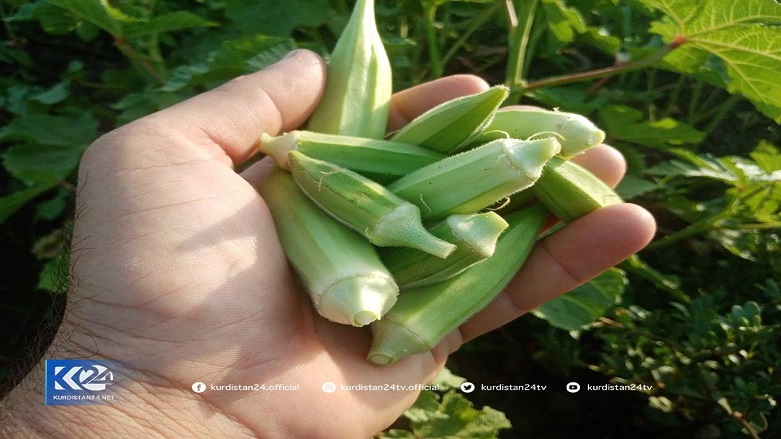PHOTOS: Local produce revives local markets in Kurdistan Region

ERBIL (Kurdistan 24) – Farmers and agricultural workers have begun to harvest dozens of different crops from villages and mountainous tracts of farmland in the Kurdistan Region and bring them to market.
Harvest began early in the villages of Sharazor, located in Sulaimani province, as well as across the other three governorates of the Kurdistan Region.

Bazaars are typically filled with Iranian, Turkish, and Syrian produce, a portion of which is brought into the region's borders by smugglers.
The Kurdistan Regional Government (KRG) announced in May plans to support the growth of greenhouses, to develop infrastructure on farming and other food production, and increase tariffs charged on imported agricultural goods as part of efforts to make the federal region increasingly self-sustainable.
Read More: Kurdistan Region to boost agriculture for increased self-sustainability
Aside from the obvious economic advantages of boosting local agriculture, it also is a key prerequisite to becoming as “food independent” as possible. It is an issue that has emerged in the minds of many after seeing the effects of both the coronavirus and shortages that resulted from embargoes Baghdad imposed on the autonomous region after its independence referendum of late 2017.
Over the past few years, local farmers have called on the KRG to block the significant flow of foreign products that are already produced or grown domestically, lowering market prices to the point where it is difficult for them to make a living.

Farmers say they hope this year's crops will contribute to a sustained revival of the market share of local produce in both small and large street markets and produce shops in the four provinces under the KRG's jurisdiction.
The Ministry of Agriculture in Erbil has previously said that any local products presented in the market without the ministry's official seals, stickers, or barcodes will be considered smuggled goods.
Editing by John J. Catherine

